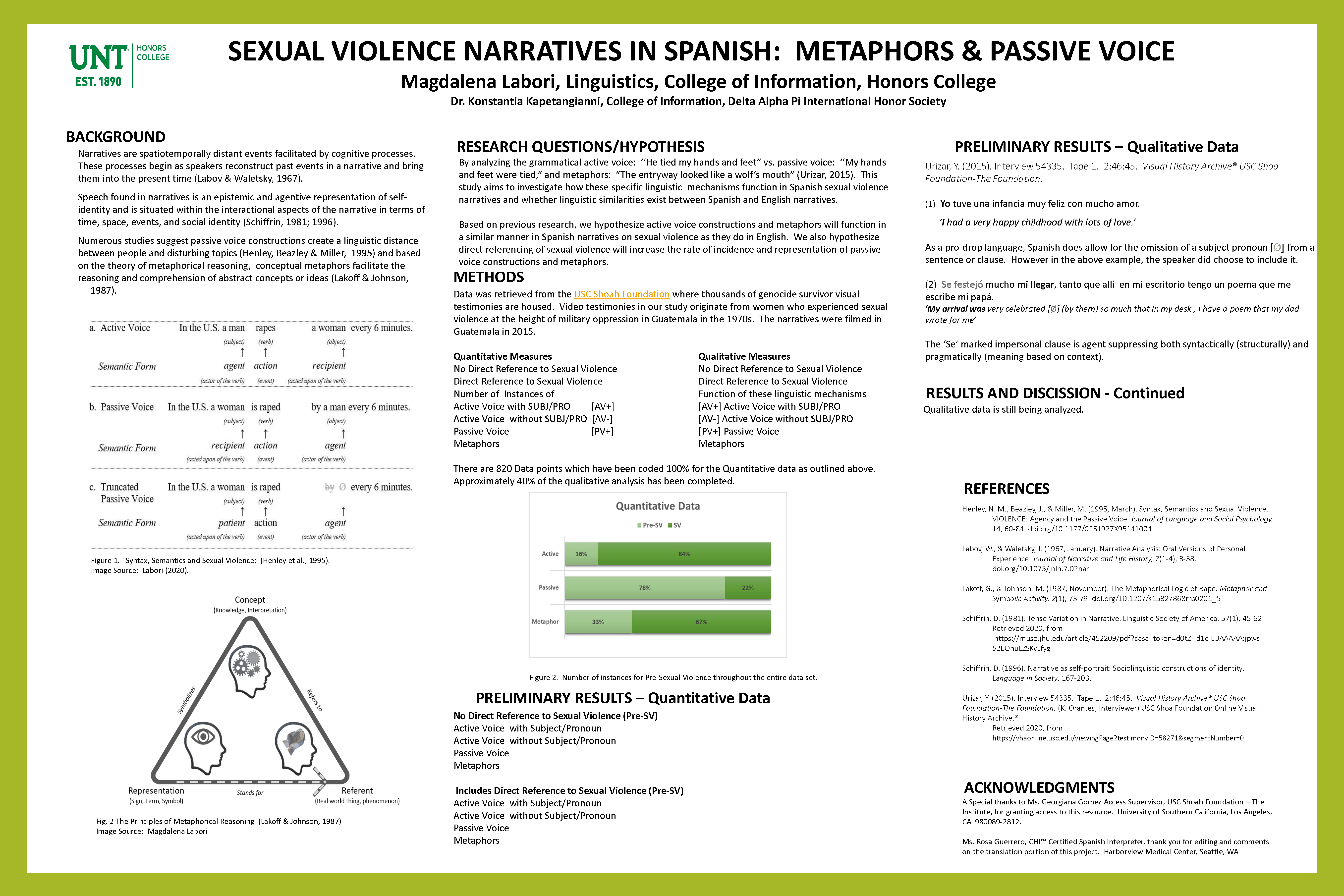First Name:
Magdalena Last Name:
LaboriMentor:
Dr. Konstantia KapetangianniAbstract:
Narratives are natural resources for the qualitative and quantitative studies of linguistic variation. As narrators share experiences, they make grammatical choices, including passive voice constructions and metaphors. This process creates unique segments of linguistic variation, and discourse analysis offers the purpose and method of studying how language is used during discourse (Labov & Waletsky, 1967). Within the context of sexual violence, a large body of work suggests passive voice constructions create a linguistic distance between a person and an event (Bohner, 2001). Psycholinguists theorize metaphors facilitate in the reasoning and comprehension of intangible concepts, including rape (Lakoff & Johnson, 1987). Similarly, metaphors are theorized to aide in the process of projection as narrators share experiences (Fraser, 2018). We have been unable to find previous studies on this topic in Spanish narratives from an informal perspective. The research we propose consists of Spanish narratives by a group of women who experienced sexual violence at the height of military oppression in Guatemala. The data was retrieved from online video testimonies offered through the USC Shoah Foundation, where thousands of video testimonies of genocide survivors are housed. The data will be transcribed, translated, and analyzed according to how narrators represent themselves and others while sharing the events of their experience (Gimenez, 2010). By analyzing active voice constructions: ‘‘He tied my hands and feet” vs. passive voice: ‘‘My hands and feet were tied,” and metaphors: “The entryway looked like a wolf’s mouth,” this study aims to investigate how linguistic distancing mechanisms function in Spanish narratives, and whether linguistic similarity exists between Spanish and English narratives. Poster:





